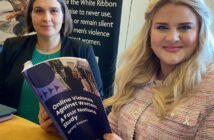The FIFA Guardians Safeguarding in Sport Diploma, which was developed with experts including academics from The Open University, to strengthen and professionalise safeguarding standards in football, is proving to be a soaring success with almost 90 learners from 70 countries attending the first ever in-person residential workshops.
In a milestone moment for the programme, the two 5-day residential workshops took place in England and France during March 2023 and saw learners from across the 211 FIFA member associations take their next step on the journey to becoming part of FIFA’s first ever group of lead safeguarding officers. The workshops enabled them to develop their confidence, share their experiences and build their own support network.
Dr Alex Twitchen, Senior Lecturer in Sport Coaching Practice, who designed the residential programme, said:
“My sincere thanks to everyone who contributed to the planning and delivery of the residentials, it was the great teamwork that made them such a success. My thanks as well to every participant for their enthusiasm and commitment to making football a safer environment for everyone. Their passion really will make a difference, and as we concluded, this is just the beginning, not the end.”
Germán Varela Moroni from the Mexican Football Federation, a learner who attended one of the residential courses, said:
“The residential workshop has been a great experience in every way and has allowed us to strengthen our knowledge of Safeguarding and protection in sport. While the online courses provide valuable information, the interaction with experts, victims and colleagues from other member federations has made us even more aware. Finally, I would like to highlight that through the different sessions and activities we have clarified the route and the steps to follow for the development and consolidation of a safeguarding policy that protects and supports all those involved in our football.”
Marie-Laure Lemineur, Head of Safeguarding & Child Protection at FIFA, said:
“We have been delighted with the success of the residential workshops and some early reports of the impact that the FIFA Guardians programme is having on embedding best practices in safeguarding within FIFA member associations. FIFA is firmly committed to building a global team of Guardians in football to ensure everyone can continue to enjoy our beautiful game, as well as supporting those interested in learning how to better protect the most vulnerable groups.”
The residentials are a core component of the FIFA Guardians Safeguarding in Sport Diploma, which comprises five online FIFA Guardians courses available in English, French and Spanish and feature facilitated forums and assignments, and a series of webinars addressing specific issues concerning safeguarding in football. Learners are required to complete and pass the full programme to obtain their FIFA Diploma.
The educational programme not only aims to enhance the protection of children in football, but also that of other at-risk groups in our game, such as young elite players, women, LGBTQI players and people with disabilities.
The pioneering programme is leading the way in adult and child safety in sport and, in a show of commitment to improving safeguarding across sports in general, open versions of the five courses are freely available for anyone working in or playing sport who wants to improve their safeguarding knowledge.
The open versions have also been hugely popular, with over 6000 learners from around the world so far completing course one.
For further information and to enrol in these courses, please visit: https://safeguardinginsport.fifa.com/
The programme is hosted on OpenLearn Create.



